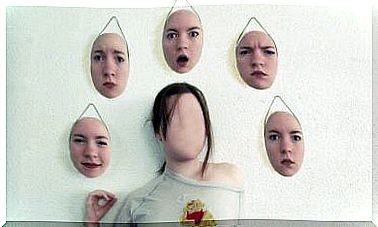What Science Says About Intelligence

In psychology, you step into a black hole where shadows are mixed with objects when you talk about intelligence. When it comes to trying to define intelligence, there is some consensus around the idea that people are intelligent when they are good at solving problems, proposing new ideas and finding new perspectives. What science says about intelligence is a broad topic, but we will try to explain it today.
Modern psychology also supports the idea of different types of intelligence rather than a global intelligence. Thanks to this new understanding, we can all agree that Einstein, Mozart and Cervantes were all intelligent.
And we can say that without testing them, for their achievements, masterpieces and discoveries are sufficient proof of their abilities. Intelligence thrives thanks to other abilities that also make us shine, such as effort, memory and creativity.
Many researchers believe that intelligence has a large genetic component. But remember that our DNA may give us many of the cards we can play in life, but not all.
We can get more from the environment in which we live, especially during the first years of life, when the plasticity of the brain is at its highest. At this stage, the brain lays the foundation for future structures, especially those related to social behavior.
The study of intelligence began with two interesting contexts where there was an interest in quantifying and measuring individual differences. One was in the military, where Robert Yerke’s work in the US Army during World War II is of great importance. The other was in education (see Alfred Binet’s work in restructuring the French education system).
In both cases, the reason for studying intelligence was to separate intelligent people from unintelligent people. In the end, they want to create a reliable instrument for measuring intelligence, which is something that people are still trying to do today.
What science says about intelligence is that intelligent people have something in common with creative people: an obvious predilection for disorder. This trait, which can cause a lot of problems for the people who live with them, is the result of their ability to find different solutions.
They often organize their things in their own, special way that is different from others. Einstein’s desk, for example, was extremely cluttered in the eyes of outsiders.
Kathleen Vohs and her staff conducted an interesting study in which they randomly divided volunteers into two groups.
One group went into an office with disorganized desks while the other went into one with clean desks. Each group was asked to “brainstorm” ideas to solve various problems. The result? The people who had disorganized desks gave more and better ideas than those with clean ones.
It seems that intelligent people do not have many friends. The time they spend on relationships tends to be more about enjoying the existing than creating new ones.
Furthermore, studies show that among very intelligent people there is a negative correlation between the number of friends and perceived satisfaction as well as general well-being.
This is interesting because if you analyze the correlation between the general population, the exact opposite is true: the more friends you have, the higher your perceived satisfaction.
There is an evolutionary theory that explains this phenomenon: intelligent people do not need support in as many areas as others. Being with other people can be an obstacle rather than an advantage.

Going through life and throwing insults around does not seem like the best course of action. Unless the goal is to get a bad reputation and spend time with people you do not agree with.
But on the internet and even in written media, there is no shortage of columnists who love to use inappropriate language. But does that mean that people who use ugly words are more intelligent? No, that’s not what we’re trying to say.
It seems that the amount of various swear words the person is capable of producing correlates with intelligence. In any case, this is what a 2009 study by psychologists Kristin and Timothy Jay seems to prove.
In their study, they asked participants to try to say as many swear words as possible. The results revealed that those who produced a longer list of bad words could also do the same in other categories of vocabulary.
When it comes to what science says about intelligence, there are other things that these people have in common. These include stepping up late, leaning ideologically to the left and caring for the environment. It also seems that a very intelligent person is at higher risk for addictions as a way of compensating for a possible lack of stimulus.









